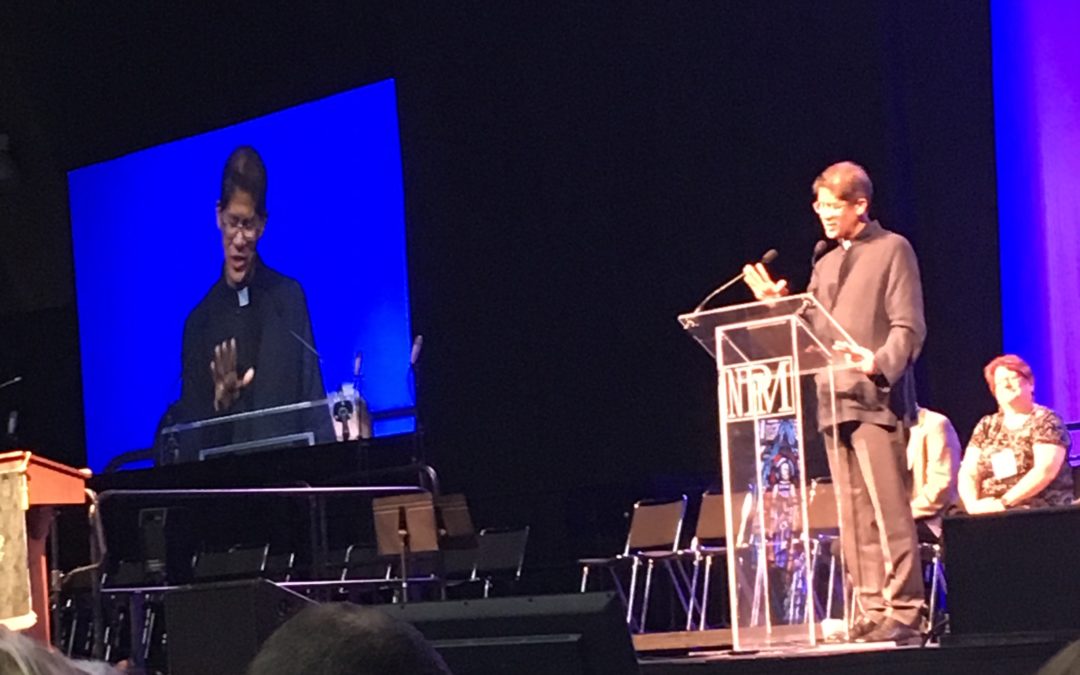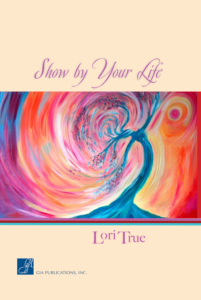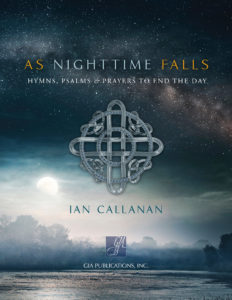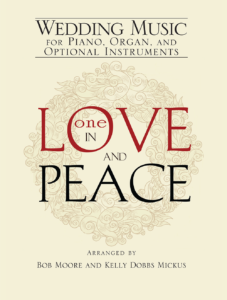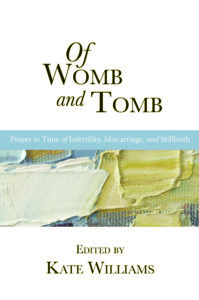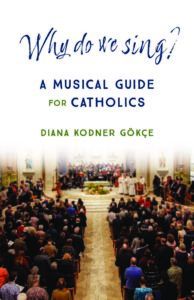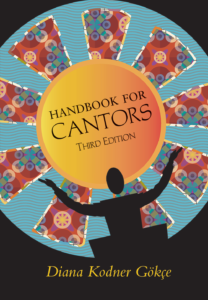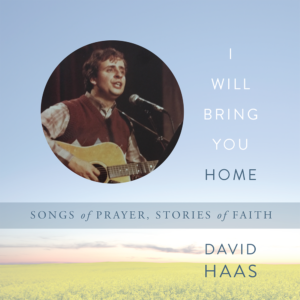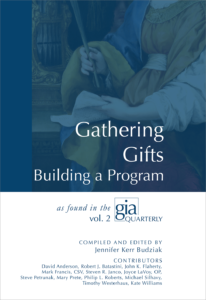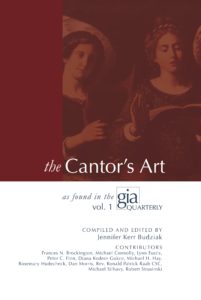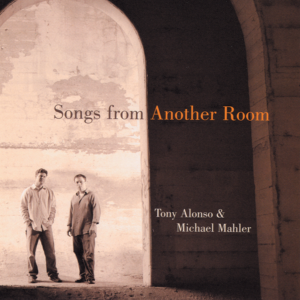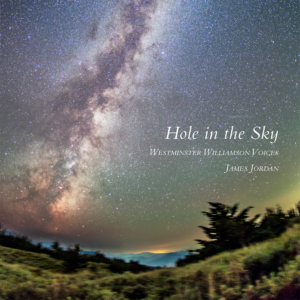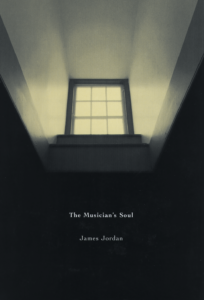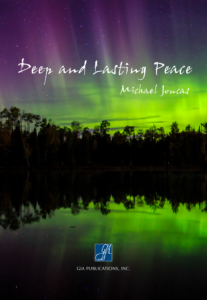I came to NPM thinking, “NPM is so full of wonderful things–I will probably write a post every day!”
Instead I find myself both ridiculously busy and so overwhelmed by the various things going through my head that I neither know what to say nor how to say it. Because there is just too much. Listening to Joyce Ann Zimmerman, whom until Monday I only knew through her books and articles from my own theology studies…being brought to tears repeatedly Monday night as Roger Holland and his choir and wonderful speakers led us in song and prayer…feeling the burst of life and joy on what could have been a sleepy Tuesday morning as VaLimar Jansen fired us all up and got is singing and praising…singing the music of St. Hildegard at the prayer service Tuesday night…most of all, Wednesday morning, seeing Ricky Manolo, whom I have known I think since he was a seminarian, receiving his award, and remembering when we were both so young, and he was the exact same gentle kind unassuming light-emitting presence then that he is today…
And seeing so many old friends, and new ones–especially the ones I never see except at NPM conventions. (Some of those same friends actually live here in Chicago near me–and yet still we only seem to see each other when we all travel to different cities for conventions.) Friends from our old Pastoral Ministers yahoo group, most of whom have migrated over to one of the NPM Facebook groups; whenever I hear someone say “real relationships cannot happen online, they must take place face to face!”–I think of these friendships, many of the decades old, and know that it just isn’t true. Friends from college, people I knew back before any of us were thinking of pastoral music as a career, who now find ourselves scattered around the sacred music world, but coming back together here and catching up. And perhaps most of all, new and younger friends–men and women I remember meeting when they were teenagers or interns in conventions past, who are now giving presentations and leading sessions and running whole departments here, with their own parish music programs, their own passions and aspirations and dreams for the world they want to build. it’s sort of odd, and of course it’s been happening for a long time, but I’m beginning to realize that I’m shifting over into being of the “old guard” of the NPM world. I’m of the generation whose part in shaping the organization is still vibrant and working, but whose work continuing work must be to pave the way the new surge of youth and energy that Steve talked about today. (I’m not done, nor am I ancient and decrepit by any means–and yeah, I’m on the younger end of that old guard, so my dear friends and colleagues who are older than me, please don’t think I’m placing you at some point on a continuum–I’m also at that stage in life where it begins to feel like everyone older than me is aging backwards, with way more energy than I have, and I want to know how they do it!)
So I’ve been thinking a lot. I’ve been thinking about passion, and about commitment. I’ve been thinking about power, and kenotic self-emptying, and how dependent they are on each other. And I’ve been thinking about time. How it passes, but at the same time how in moments like this week it seems as though it begins to double on itself, or give us “thin places” as the Celtic tradition refers to them, places where the boundaries seem more fluid than they used to. For me this year, the past and the present feel like they are coming together and almost overlapping. One of those overlaps for me is the memory flashback I keep having to a few NPM’s ago, when Fr. Richard Fragomeni gave a plenum address in a flawless rondo form. (I love it when musician-scholars become homilists; their homilies have such lovely structure.) The recurring “A” theme of his talk has stayed with me; he said: “We die…before we die…so that when we at last come to die…there is not much left of us to die…but only Jesus who lives in us.”
Kenosis. Self-emptying. And once one is empty of one’s own Stuff, there is room there for God to come in. And when we are full of ourselves, how can there be room for God?
Ironically, when I started typing that previous sentence, I was thinking simply in terms of being “full” of the self-stuff before self-emptying, but the phrase “full of ourselves” has its own loaded meaning, doesn’t it? And this kind of “fullness” comes not just with the more obvious trap of ego (“wow, he’s so full of himself!”), but also with the twin trap of fear. Isn’t it, in the moments when we are afraid to step out and give what we have for fear it’s not good enough, or back off from singing the note because we are afraid it won’t come out, or over-plan and over-function in our jobs because we are afraid if we don’t do it it won’t get done and everything will fall apart and the world will end, just as much an ego trip as the conviction that we have it all together and are in some way superior to everyone else?
Which is where commitment comes in. And power. Because once we have committed to emptying ourselves of self, the power of God can come in.
When I watched Roger Holland conducting on Monday night, even amidst being profoundly moved by the music and the prayer, I was struck by the fact that, while the gestures he was using as a conductor were not the ones I’d been taught in conducting study, every single one was exactly what it needed to be to get the response the music was calling for. Not that he was calling for, that the music was calling for. He was fully committed, to the music and the humans making it and the God we all serve, pulling in all his years of study and experience and knowledge but leaving the self-stuff out so that the power of God and the power of the music could work through him. And wow, how they worked.
I felt the same way this afternoon at the Poe event at Westminster (if you didn’t catch that, you have to try and go tomorrow!), as we alternately heard performances of Poe’s poetry and then joined together in gorgeous and thematically connected hymns. The actor portraying Poe was excellent, and of course the poetry of this American master is peerless…but I was most struck by the presence and playing of Lynn Trapp at the organ. I’ve known Lynn for years, but I don’t get to see or hear him play often enough; he’s a stellar organist by any measure, and the prelude music was gorgeous, but even more I noticed and loved the way he led the roomful of singing church musicians. He played a hymn introduction; we started singing. We started slowing down. (Like immediately. Doing exactly what frustrates us when our choirs and assemblies do it. I’m not sure why we do that; is it our lack of commitment that makes us us hang back?) He didn’t push, he didn’t do anything dramatic, he simply…led us back to tempo; a gentle guiding conducting arm from Michael our narrator helped as well. It took maybe 2 bars; from there on, we were in–we were committed, we sang, together, making music, with Lynn at the helm playing some fantastically Poe-like harmonizations of some of the hymns at exactly the right places…with us, not for us. And in the verse where PLEADING SAVIOR went into an a cappella four part canon verse with sopranos starting, after setting up the rhythmic transition from one verse to the next, Lynn just ceased the organ sound and let the sopranos enter on their own. No gesture, no accompaniment, just trust. And after a split second hesitation, they did enter, followed by the rest of the church-filling choir. It was glorious.
Power. Kenosis. Trust.
(I wonder if our actor-Poe had ever performed for an “audience” like this one before?) (Would it be completely inappropriate for me to think of him as our “faux-Poe”?)
Speaking of time looping back around–the very first text I can recall setting as a very young composer, probably in middle school or possibly high school, was Edgar Allen Poe’s “The Bells.” As the poet kept his own “time time time in a sort of Runic rhyme,” I could hear again the little melody I’d created back then, something I don’t think I’ve thought of in decades.
Best of all, today I got to spend a beautiful hour or so with a dear old friend, my first church music friend and partner in composition; we live far apart, and we generally only see each other at conventions now, but as I sat across from him and we looked at each other, it was as though in that moment we were the same young eager hopeful servants we were 28 or so years ago, and no time had passed at all.
Not all of my posts will be half this thoughtful and reflective, I promise; something in the air at NPM I guess. 🙂 I swear when I started I was just going to talk about some of the wonderful things I’ve witnessed and been able to be part of. But this is where I am today.
Michael Silhavy closed the Poe presentation with a wonderful quote from St. Augustine, and I’ll close here with it as well; it’s one of my favorites:
So, then, let us sing now, not in order to enjoy a life of leisure, but in order to lighten our labors. You should sing as wayfarers do — sing, but continue your journey. Do not be lazy, but sing to make your journey more enjoyable. Sing, but keep going. What do I mean by keep going? Keep on making progress. If you make progress, you will be continuing your journey, but be sure that your progress is in virtue, true faith, and right living.
Sing then — but keep going.
And…let the people of God sing Amen!
–Jennifer

